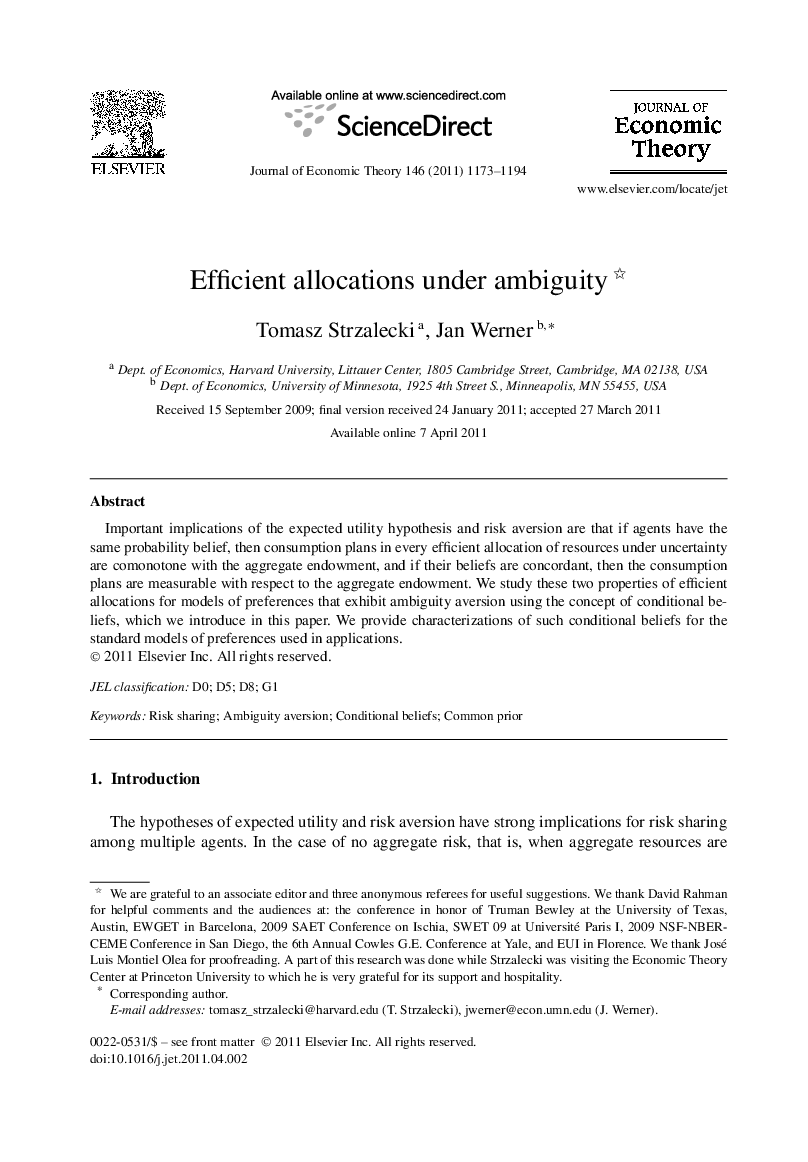| Article ID | Journal | Published Year | Pages | File Type |
|---|---|---|---|---|
| 956977 | Journal of Economic Theory | 2011 | 22 Pages |
Abstract
Important implications of the expected utility hypothesis and risk aversion are that if agents have the same probability belief, then consumption plans in every efficient allocation of resources under uncertainty are comonotone with the aggregate endowment, and if their beliefs are concordant, then the consumption plans are measurable with respect to the aggregate endowment. We study these two properties of efficient allocations for models of preferences that exhibit ambiguity aversion using the concept of conditional beliefs, which we introduce in this paper. We provide characterizations of such conditional beliefs for the standard models of preferences used in applications.
Related Topics
Social Sciences and Humanities
Economics, Econometrics and Finance
Economics and Econometrics
Authors
Tomasz Strzalecki, Jan Werner,
